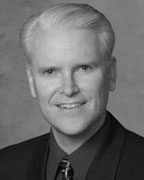
David H. Thiele
David has degrees in Religion, Social Science, Secondary Education and Business Administration from Union College, Lincoln, NE.
What will you do when fire falls from heaven upon the wrong altar?
I was sitting in Pastor Wayne Miller’s1 living room in Galesburg, Illinois, when my thoughts ran along paths they had never previously visited. Our conversation was on end-time events, especially the deceptions Satan will use to confuse and trap all who are not grounded in the Scriptures. Pastor Miller directed that conversation to the Mount Carmel experience of Elijah and Israel with the scene replayed as a future event—the fulfillment of Revelation 13:13—“He doeth great wonders, so that he maketh fire come down from heaven on the earth in the sight of men.”
Thinking back on that exchange, I am considering the challenge cast by postmodern ministers seeking to influence church growth with their focus on the “emerging church.” This emphasis is upon meeting the secular, unchurched, postmodern mind in creative, authentic, relational ways that promote self-esteem rather than the stodgy approach upon which evangelicals and fundamentalists have relied for decades. I have discerned a chronic digression that some tout as progress in the right direction. I see less accountability, less discipline, and a lowered standard that in actuality is more problematic to church growth than proponents of the emerging church like to admit. Even as they criticize the apparent stagnation faced by evangelicals and fundamentalist Christians who seem unable to reach these unchurched, I have to ask the question, “Will the real church please emerge?”
Actually, the challenge is not so much in asking the real church to emerge as it is in recognizing how the real church has emerged in times past. How has it revealed its true identity, approved with the signature of God? The dilemma is then in acknowledging the truth when that identity is established (hence, the connection to Pastor Miller’s query).
The identification process will be useless if we cannot agree upon the fundamentals of the process. Those who wish to adhere to their positions, regardless of contrary evidence, will remain unstable in their attempts to minister to the postmodern sophisticate. The only other option is to adhere to the tried-and-true tests of the law and the testimony.2 Culture may shift, and the mind may change, but God is the same yesterday, today, and forever. He is omniscient; His purposes remain changeless. “God being infinite in wisdom and goodness, his purposes and decrees are immutable.”3 So it is important for us to acknowledge that any adaptation occurring on His part has nothing to do with the instability of culture or human thinking but is directly linked to His changeless purposes.
From the time God first sought out the trembling, camouflaged couple, the manner of reconciling the unregenerate heart has remained the same: reproving of sin, of judgment, and of righteousness.4 In every example given in the Scriptures, we can see that “God does not send messengers to flatter the sinner. He delivers no message of peace to lull the unsanctified into fatal security. He lays heavy burdens upon the conscience of the wrongdoer, and pierces the soul with arrows of conviction. The ministering angels present to him the fearful judgments of God to deepen the sense of need, and prompt the cry, ‘What must I do to be saved?’ Then the hand that has humbled in the dust, lifts up the penitent. The voice that has rebuked sin, and put to shame pride and ambition, inquires with tenderest sympathy, ‘What wilt thou that I shall do unto thee?’”5 We should not seek to improve upon the success of Enoch, Noah, Abraham, Joseph, Moses, Elijah, Daniel, John the Baptist, Peter, Paul, and a host of others, in reaching those who came within their sphere of influence so much as to obtain the purity of character that has the approval of God.
So then, how can we abandon the very method appointed by God for reaching the postmodern mind? Would we not be unfaithful servants if we choose methods that are contrary to the very message we are called to proclaim? We cannot help but conclude that the work of the so-called emerging church is contrary to the work of the three angels’ messages. We must persevere with the basic understanding that “there are limits to the forbearance of God; there is a point at which it becomes necessary to interpose his vengeance, and visibly to rebuke the impiety of men. It is no less apparent that those who love and obey God’s law will realize that he means what he says, and that all his precious promises to the faithful and obedient will be fulfilled to the letter.”6
This is not to mean that we are to be tactless, or without kindness, in our dealings with the postmodern sophisticate. Even in His dealings with His half-brothers, Jesus did not verbally rebuke their misdeeds. But His life of purity and integrity was a “continual irritation” to them.7 Is the postmodern sophisticate any different from Christ’s brethren? Even though the religion of God is unattractive to the world, what business do we have to modify it in any way to make it more pleasing to the carnally minded?
If the worship service is altered to meet the standard of the world, it will be a service without the approval of God. Therefore, it will be devoid of His presence. When extending the invitation to church, we must make it clear to all who attend that we are not the focus of the service. The focus is upon God. The glory is to be His alone.
Our meetings should be made intensely interesting. They should be pervaded with the very atmosphere of heaven. Let there be no long, dry speeches and formal prayers merely for the sake of occupying the time. All should be ready to act their part with promptness, and when their duty is done, the meeting should be closed. Thus the interest will be kept up to the last. This is offering to God acceptable worship. His service should be made interesting and attractive and not be allowed to degenerate into a dry form. We must live for Christ minute by minute, hour by hour, and day by day; then Christ will dwell in us, and when we meet together, His love will be in our hearts, welling up like a spring in the desert, refreshing all, and making those who are ready to perish, eager to drink of the waters of life.8
The purpose is not to be focused on entertaining the listeners but on instructing them how we may better serve God and our fellow man as we prepare to live in God’s presence.
The object of every sermon should be consistent with the goal of preparing lives for heaven. It should be informative and instructive with the right balance of indicative and imperative, what is and what ought to be. It should remind us that “God’s Word and His works contain the knowledge of Himself that He has seen fit to reveal to us. We may understand the revelation that He has thus given of Himself. But it is with fear and trembling and with a sense of our own sinfulness that we are to take up this study, not with a desire to try to explain God, but with a desire to gain that knowledge which will enable us to serve Him more acceptably. Let no one venture to explain God. Human beings cannot explain themselves, and how, then, dare they venture to explain the Omniscient One?”9 After all, the human heart is deceitful above all things.10 When a sermon is firmly based on Scripture, instead of being based on some story, it will provide opportunities for instruction in doctrine as well as reproof and correction. Yet, far too often the postmodern minister will spend the majority of his time in the pulpit developing a sermon that is shaped more like a locker-room-motivational-positive-thinking-pep talk geared to building the self-esteem and self-image of the listener. As an ambassador for Christ, no minister should enter the pulpit to preach a word to the people without first obtaining the assurance that God’s seal of approval rests upon it!
The music of worship is not to appeal to the carnal or sensual mind, but rather music should turn the mind from selfishness and idolatry to the holiness of God. “Music was made to serve a holy purpose, to lift the thoughts to that which is pure, noble, and elevating, and to awaken in the soul devotion and gratitude to God. What a contrast between the ancient custom and the uses to which music is now too often devoted! How many employ this gift to exalt self, instead of using it to glorify God! A love for music leads the unwary to unite with world-lovers in pleasure-gatherings where God has forbidden His children to go. Thus that which is a great blessing when rightly used, becomes one of the most successful agencies by which Satan allures the mind from duty and from the contemplation of eternal things.”11
When it comes to church growth, there can be no success apart from the acknowledgment that from “the beginning it was Satan’s purpose to separate man from God. And this purpose he has carried out in every age. Constantly he is at work among the children of men. He sways all classes. The same method of deception, the same logic, that he used to deceive the holy pair in Eden, he has used in all succeeding ages. His plan of work has ever been one of deception. At times he assumes a cloak of piety, purity, and holiness. Often he transforms himself into an angel of light. He has blinded the eyes of men so that they can not see beneath the surface and discern his real purpose. As a result of Adam’s disobedience, every human being is a transgressor of the law, sold under sin. Unless he repents and is converted, he is under bondage to the law, serving Satan, falling into the deceptions of the enemy, and bearing witness against the precepts of Jehovah. But by perfect obedience to the requirements of the law, man is justified. Only through faith in Christ is such obedience possible. Men may comprehend the spirituality of the law, they may realize its power as a detector of sin, but they are helpless to withstand Satan’s power and deceptions, unless they accept the atonement provided for them in the remedial sacrifice of Christ, who is our Atonement—our At-onement— with God.”12
True success can only come to those who faithfully adhere to the methods God approves, with the understanding that the sheep in other folds will recognize the voice of their Master.13 Failure will certainly attend those who manage to distort that voice through the improvisations of their own devisings. As we see a faithful adherence to the methods God approves, then we will see the real church emerge, without spot, wrinkle, or blemish. The real church will emerge victorious.
NOTES
1 Wayne Miller currently pastors the Galesburg Park View Seventh-day Adventist Church, located in Galesburg, Illinois.
2 Isaiah 8:20.
3 Signs of the Times, December 9, 1880.
4 John 16:8.
5 Ellen G. White, The Desire of Ages (Oakland, CA: Pacific Press Publishing Association, 1898), 104.
6 Signs of the Times, December 9, 1880.
7 The Desire of Ages, 88, 89.
8 Ellen G. White, Testimonies for the Church, vol. 5 (Oakland, CA: Pacific Press Publishing Association, 1882), 609.
9 Ellen G. White, The Upward Look (Hagerstown, MD: Review and Herald Publishing Association, 1982), 326.
10 Jeremiah 17:9.
11 Ellen G. White, Patriarchs and Prophets (Battle Creek, MI: Review and Herald Publishing Association, 1890), 594.
12 Signs of the Times, July 23, 1902.
13 John 10:3, 4, 16, 27.
